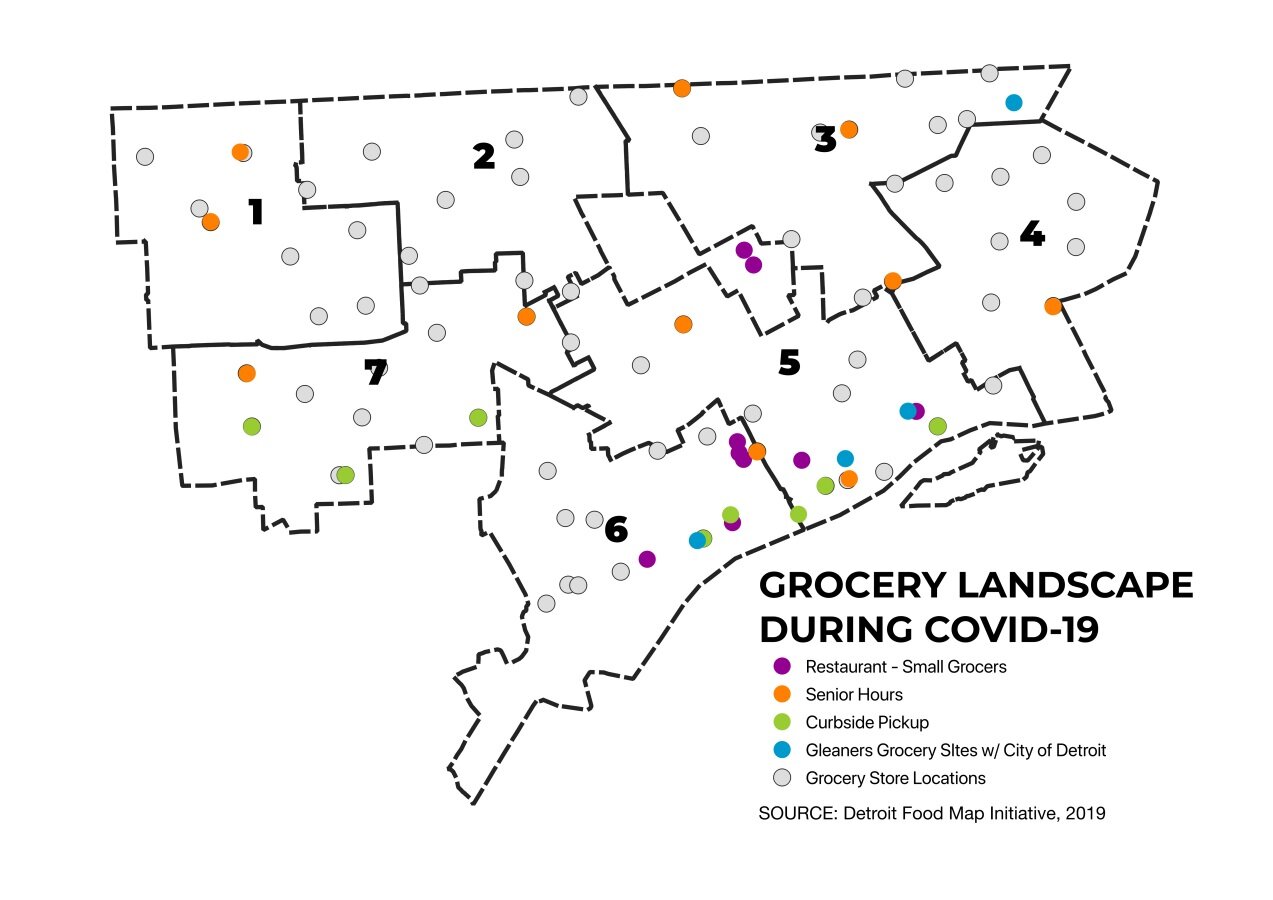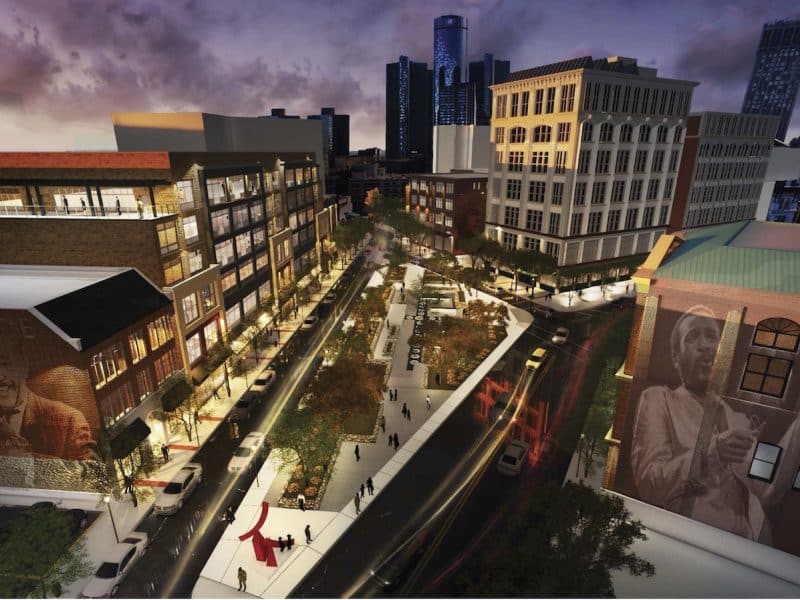Food for thought: Mapping Detroit’s grocery stores
During the COVID-19 pandemic, a number of stores closed temporarily, a handful of restaurants became small grocers, and organizations distributed supplies via emergency food boxes. Now, despite many corner and convenience stores, most Detroiters get their groceries at one of 64 full-service spots.

This is part of a series from the unofficial cartographer of Detroit, Alex B. Hill, a self-described “data nerd and anthropologist” who combines mapping, data, and analytics with storytelling and human experience. He is the founder of DETROITography and author of “Detroit in 50 Maps."
Measuring access to groceries and fresh produce is a longstanding Detroit conundrum, particularly around discussions of “food deserts” and the more layered understanding of “opportunity deserts“. Counting all locations by business listing, there are well over 200 grocery stores, yet the majority of these are party stores, liquor stores, or gas station food marts rather than full-service grocery stores. Despite what many people may think, most areas of Detroit are served by one of only 64 full-service grocery stores.
Even with the controversies over counting store types, Detroit’s grocery landscape has seen a steady decline and a number of recent losses. The COVID-19 pandemic caused a delayed effect on grocery changes that the city is still seeing unfold. A number of stores closed temporarily, a handful of restaurants became small grocers, and numerous organizations distributed “groceries” via emergency food boxes and drive-thru pickup lines.
As project director of the Detroit Food Map Initiative and member of the Detroit Grocery Coalition, convened by the Detroit Food Policy Council, DETROITography has been tracking changes since 2011. Independent grocers are holding steady in the neighborhoods, although at reduced staff, hours, and sometimes supply chains. The changing food access patterns during COVID-19 ranged from restaurants stocking dry goods and multiple food-box pickup locations, to local grocers offering senior hours for shopping.
Recent closures and losses have, however, benefited some of the city and region’s local grocery chains. The Imperial Fresh Market stores have thrived during the pandemic with locations sprinkled all across the city. Bi-Rite Supermarket made its Detroit debut after operating a River Rouge location for many years. Finally, Garden Fresh Marketplace took the opportunity to add a second location at what used to be King Cole Foods.
Where do you like to get your groceries? Let us know.





